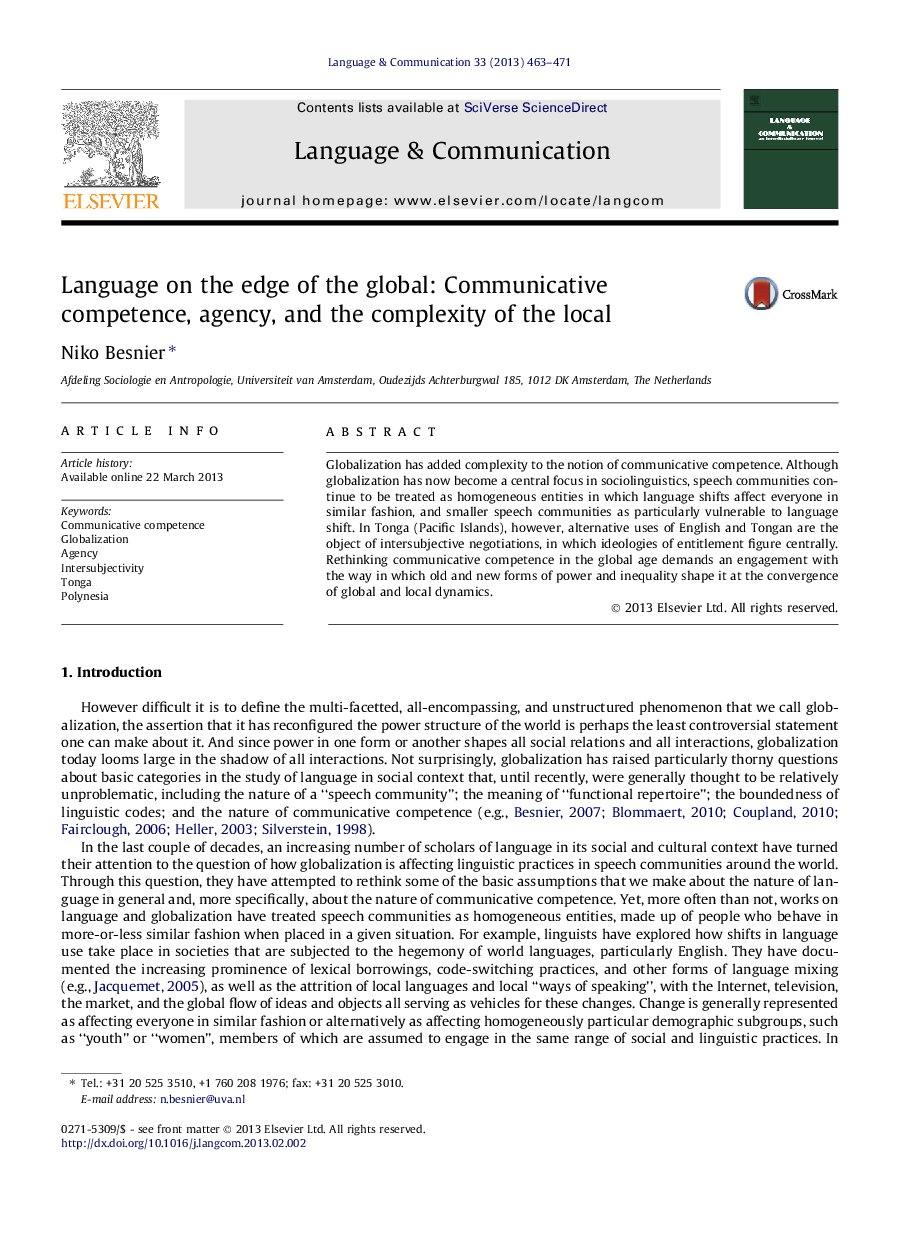| Article ID | Journal | Published Year | Pages | File Type |
|---|---|---|---|---|
| 934929 | Language & Communication | 2013 | 9 Pages |
Globalization has added complexity to the notion of communicative competence. Although globalization has now become a central focus in sociolinguistics, speech communities continue to be treated as homogeneous entities in which language shifts affect everyone in similar fashion, and smaller speech communities as particularly vulnerable to language shift. In Tonga (Pacific Islands), however, alternative uses of English and Tongan are the object of intersubjective negotiations, in which ideologies of entitlement figure centrally. Rethinking communicative competence in the global age demands an engagement with the way in which old and new forms of power and inequality shape it at the convergence of global and local dynamics.
► Rethinking communicative competence in light of globalization. ► Complexity and heterogeneity of small-scale linguistic communities on the margin of the global present. ► Defining the local is prone to contestation, and language figures centrally in these processes. ► Globalization both reproduces existing socio-economic disparities and produce new ones.
